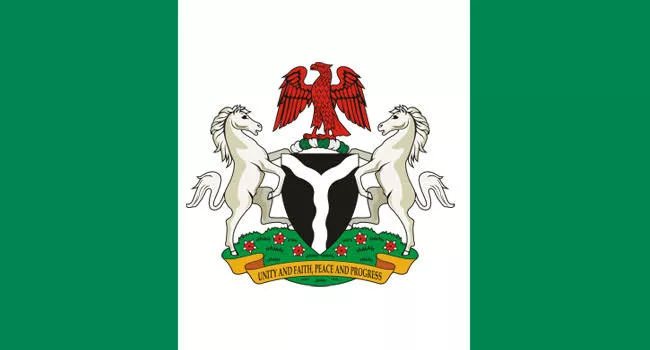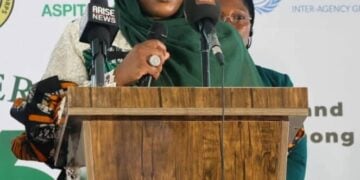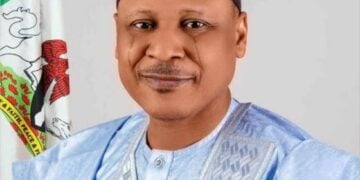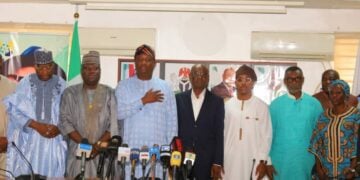State governors and eminent clerics have assured Nigerians that the current hardship faced by them will soon give way to better days.
In their Easter messages yesterday, the governors of Plateau, Gombe and Akwa Ibom States pledged to do more to improve on the wellbeing of the Nigerians.
On the other hand, the clerics who included the Bishop of the Catholic Diocese of Sokoto, Most Rev’d Matthew Hassan Kukah and the Archbishop Metropolitan and the Primate of Church of Nigeria, Anglican Communion, Most Reverend Henry Ndukuba, asked President Bola Ahmed Tinubu and the governors to cut down the cost of governance and pay more attention on the citizens’ wellbeing.
The chairman of Northern States Governors’ Forum and governor of Gombe State, Muhammadu Inuwa Yahaya, who extended his felicitations to Christians in the state and Nigeria as they celebrate this year’s Easter festivities, urged more prayers for sustained peace and stability in Gombe State, Northern Region and Nigeria as a whole, emphasizing the significance of unity, brotherhood, and service to God and humanity during and beyond the Easter period.
The governor, who highlighted the essence of Easter, which symbolizes love, sacrifice, and the triumph of good over evil, urged Christians to reflect on these core principles and integrate them into their daily lives.
“I extend warm congratulations to our Christian brethren for completing the Lenten Season and celebrating Easter. We are grateful to the Almighty for granting you the strength to go through this significant spiritual journey. May the blessings of this period rejuvenate our nation and steer us towards lasting peace, progress and prosperity.”
He expressed optimism in overcoming prevailing socio-economic and security challenges through collective effort and divine intervention.
The NSGF chairman acknowledged the current distress faced by the nation amidst security threats and socio-economic strains, occasioned by the recent removal of fuel subsidies and global economic downturn. Nevertheless, he urged citizens to find solace in the blessings of Easter and work towards sustainable peace and development.
He urged religious leaders to continue to utilise their platforms to promote peace, tolerance, and unity among Nigeria’s diverse population.
His Plateau State counterpart Caleb Mutfwang charged believers to place their anxieties, cares, and concerns for the future in Jesus Christ.
In his Easter message delivered at the COCIN Headquarters Compound Church in Jos, Governor Mutfwang emphasised the importance of fervent prayers to actualize policies aimed at improving the standard of living for Plateau citizens.
Accompanied by his wife, Barr Helen Mutfwang, the governor expressed gratitude to citizens for their unwavering faith in his administration. He assured that the government remains committed to working for the common good of the people.
Mutfwang acknowledged the economic hardships faced by Plateau residents due to the nation’s challenges. He highlighted that the meager take-home pay received by individuals is insufficient to feed their families and urged them to always look up to God.
He also recognised the relative peace enjoyed in the state, despite sporadic attacks. “Recently, two students were kidnapped in Bokkos, but both were rescued by divine intervention.”
The governor announced the resettlement of Internally Displaced Persons to their ancestral homes before the rainy season begins. He called for fervent prayers to overcome the challenges associated with this endeavour.
Governor Mutfwang further encouraged citizens to embrace agriculture as a means of survival. He emphasized that Plateau must contribute to national food security by creating wealth through farming.
In a sermon to mark Easter, the Senior Pastor, Associate Prof. Caleb Dami, reminded believers that Jesus Christ’s resurrection liberates them from sin. He drew inspiration from Matthew 28:1-10, where the angels declared Jesus had risen from death.
The governor of Akwa Ibom State, Pastor Umo Eno, raised the hope that the country would navigate her way out of the prevailing socio-economic challenges induced by the removal of fuel subsidy by the Federal Government, admonishing that it was time for sub – national leaders to devise special strategy to stay afloat.
Addressing the people in a state-wide broadcast on Easter Sunday, the governor noted that the current travails of the nation and the people are not peculiar to Nigeria alone, but leaders must think out of the box for a way out.
And towards addressing such fears, Pastor Eno explained that his administration has been compelled to take some far – reaching interventions, especially in agriculture, health, education, gratuity and pension payment, free food and accommodation for the very poor and elderly in the state, amongst other people-oriented policies and programmes.
He said, “We are living in a moment and time that mirrors what Christ went through over 2,000 years ago; a period of trial and tribulation, of economic pains and anxieties, but conditioned by hope that, just as Christ overcame death, we, too, will overcome this period and victory will be ours eventually.
“We remain dedicated to turning the challenges and anxieties of today into opportunities for growth and expansion tomorrow. That explains the intentional manner we have gone about tackling the harsh economic realities we are currently facing.
When nations or sub – nationals are confronted with dire economic circumstances, leaders devise means of addressing the needs of the people – short, medium and long term. That is precisely what we have done by showing compassion, love and attention to the most vulnerable and the most vulnerable poor and the elderly amongst us.
“The headwinds of the harsh economic atmosphere arising from the removal of fuel subsidy has affected us all, especially those on the lower rungs of the economic ladder. Thankfully, it was as if we knew this moment would come, as the key focal point of our governance blueprint, the ‘ARISE Agenda’, places a huge premium on agricultural revolution, aimed at ensuring food security for our people,” he said.
In his message, Kukah said things are hard in the country but there is still light at the end of the tunnel.
Kukah said he is optimistic that the country will heal from the scars of hunger and destitution; the wounds of physical and psychological violence.
The Catholic Cleric who stated these in his annual Easter Message to Nigerians on Sunday, called on Christians to wake up to their duties and responsibilities of what it is to be Christian as an individual, a family, a community or in public life.
He said there are tough times ahead and politics alone will not change the fate of the country, neither will all the right economic policies or positive ratings by the world’s agencies hence the need to do more.
“Nigeria has lost its soul and the evidence lies before us all. The mindless corruption and debauchery in high places is merely a symptom of a deeper rot. It is not the real disease. We must recover our lost souls. Christians cannot discount our high moral values simply because, this is Nigeria and, things are hard or everyone is doing this or that.
“With nothing but the moral force of faith in the risen Jesus, 11 semi-illiterate men, pursued by the roman authorities, finally converted the empire itself. If you doubt the force of true believers, think again. Not by power nor by might, but by my spirit, the Lord says.
“The evil that we see around us is a consequence not a cause. We have relied on tools of social sciences to create all kinds of doomsday scenarios about the impending end of Nigeria. In the 90s, the pessimists told us that we were on the road to Rwanda. Time passed and we never got to Rwanda. Then the experts wrote so many opinion and editorial articles claiming that rather than Rwanda, we were heading for Somalia.
“We have arrived at none of these destinations not due to poor map reading but due to superficial and scaremongering reading of history and analysis of social dynamics of society. Faith renews a people and a nation. St Paul said it all: To have faith is to be sure of the things that we hope for, to be certain about the things we cannot see……No one can please God without faith (Heb. 11: 1, 6). I leave you with four points to ponder on,” Kukah said.
The Sokoto bishop admonished that the federal government must first come up with a robust template for how it wishes to reverse and put us on a path of national healing, including a deliberate policy of inclusion that will drastically end the immoral culture of nepotism.
He said the government must design a more comprehensive and wide-ranging method of recruitment that is transparent as a means of generating patriotism and reversing the ugly face of feudalism and prebendalism, harping on a need for a clear communications strategy that will serve to inspire and create time-lines of expectations of results from policies.
“Second, the notion of rejigging the security architecture is a hackneyed cliché that is now at best, an oxymoron. It is difficult to fathom our current situation regarding the ubiquity of the military in our national life. It is impossible to explain how we can say we are in a civilian Democracy with the military literally looking like an army of occupation with an octopus sean spread across all the 36 states and Abuja. This has very serious consequences both for its professionalism, its integrity and perceived role in protecting society.
“No other person than the immediate past Chief of Defence Staff, General Lucky Irabor who recently referred to the military as facing the dilemma of what he called, see finish. It is now difficult to say whether the persistence of insecurity is a cause or a consequence of military ubiquity. Trillions of Naira continue to go into bottomless pits with little measurable benefits.
“Our military’s professionalism cannot be diluted by the recruitment of hunters, vigilante groups and other unprofessional and untrained groups. This is not sustainable because it leaves the military open to ridicule and perceptions of surrender. Fighting insecurity is now an enterprise.
“I believe our security men and women can defeat these criminals in a matter of months. All we hear and see are fingers pointing to the top. No, this must end. The alternative is too frightening to contemplate. The time was yesterday, but today is still possible,” he said.
Kukah said it was cheering to hear that President Bola Tinubu has announced that kidnapping and banditry are now to be treated as acts of terrorism.
“If so, we need to see a relentless and implacable plan to end this menace with a definite date line for bringing these terrorists to their knees, no matter what it will take. Without a timeline for eliminating these evil, despicable, malevolent and execrable demons from among us, our future as a people will be imperiled. I commend the government over its promise to stop paying ransom to bandits and kidnappers,” Kukah said.
The Archbishop Metropolitan and the Primate of the Church of Nigeria, Anglican Communion, Most Reverend Henry Ndukuba has charged Nigerian leaders at all levels to shun corruption and selfishness for God to turn around the economy of the country.
Ndukuba who made this known on Sunday during his Easter message at the Cathedral Church of Advent, Life Camp, Abuja, also admonished Nigerians to hold fast, that the economic situation the country is facing currently is not the end, but the last word belongs to God.
He assured Nigerians that there is light at the end of the tunnel, that they should not give up because it is night or people are suffering, saying that as Jesus rose from the dead, God will turn things around for the nation.
“Thank God that today we are celebrating Easter which is the commemoration of the suffering, death and resurrection of our Lord and Saviour, Jesus Christ from the grave. It is a new dawn in the fact that God has done what he alone can do, he is the only one that can turn things around.
“People of God and wonderful citizens of Nigeria should also hold fast that the economic situation and challenges are not the end, the last word belongs to God. It is not even in the hands of the politicians or those who are making rules, it is God.
“Excellency and power belong to him. Power to give life, power to kill, power to raise and bring down, the sovereignty belongs to God not to man. I want to tell Nigerians that our future is not in the hands of the economic system, if you ask the CBN Governor, he will tell you that he is only trying what he knows, but the one who knows the end from the very beginning is God,’ he said.
According to the Anglican Primate, he believes God that as Jesus gave the people new hope and life in the midst of death, he will also turn Nigerians’ plight and predicament around for the best.
“It requires that we be faithful, that we turn aware from our wickedness. One of the things that the scripture says in Psalm 16 is that God will not allow his holy one to see corruption. Corruption or decay is a system that deals with what should be and they turn it upside down.
“We must deal with corruption in our nation in Nigeria, if we don’t kill corruption, corruption will kill us. We must deal with selfishness in leadership, because whenever you give people the opportunity to serve or organize things, they will begin to think of what they will gain, not what they will give,” he said.





